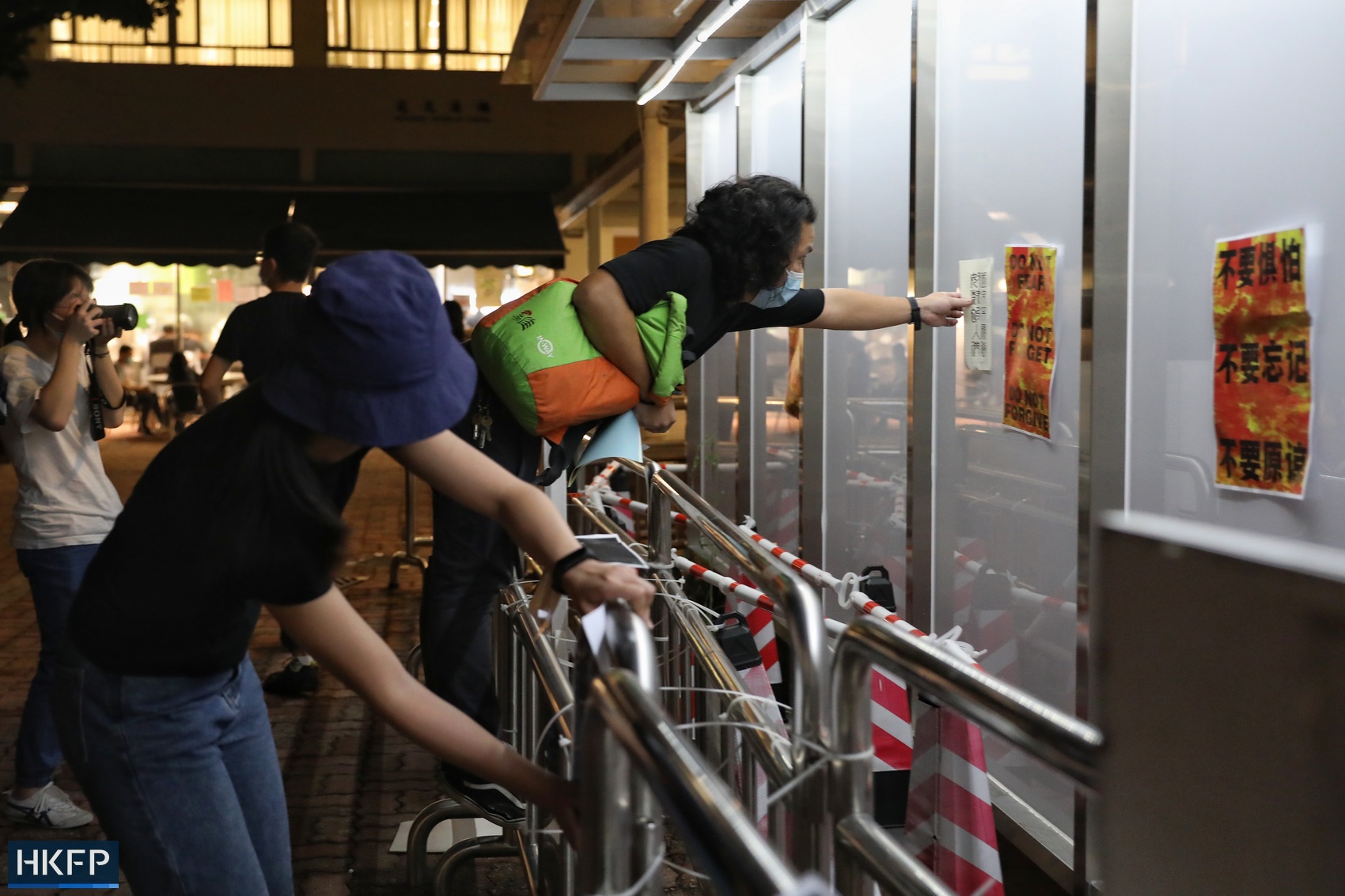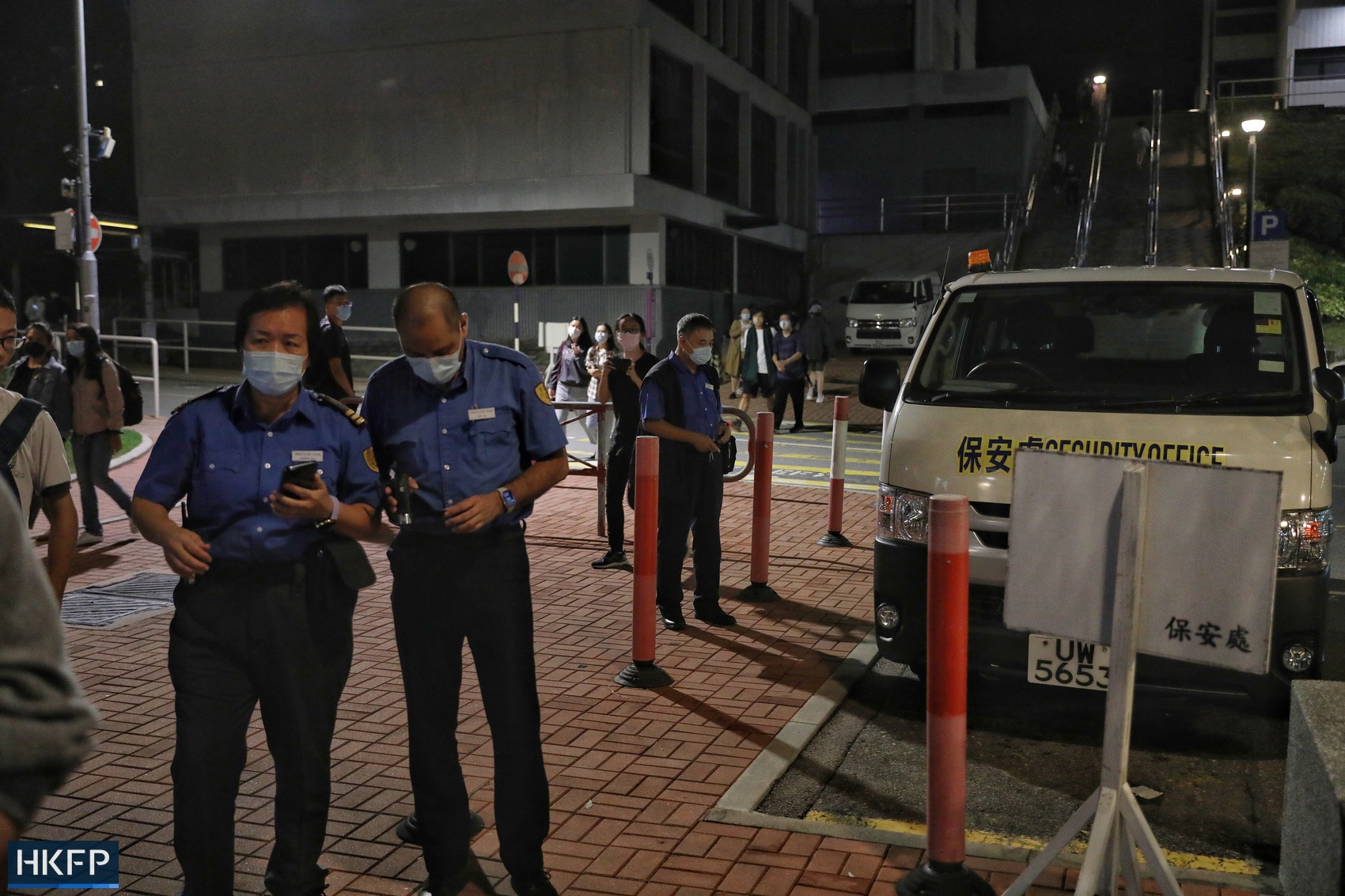About 50 people gathered for a vigil at the Chinese University of Hong Kong (CUHK) on Monday night to mourn those who died in a Xinjiang fire after it was locked down amid Covid restrictions. Beijing has said that those linking the incident to its zero-Covid approach had “ulterior motives.”

Ten people were killed and nine injured when a blaze ripped through a residential building in the regional capital Urumqi last Thursday, according to state news agency Xinhua. Online posts circulating on both Chinese and overseas social media platforms afterwards have claimed that lengthy Covid lockdowns in the city hampered rescue attempts.
Protests against China’s stringent Covid-19 measures soon escalated across the country. Some of the demonstrations evolved into calls for broader freedoms, whilst some took aim at the country’s leadership – rare in China, where police often target dissent.

At CUHK, some students – who mostly spoke Putonghua, as used on the mainland – put up posters and placed candles on the ground.

Some distributed blank A4 paper to passers-by – a symbol of the escalating demonstrations in China against zero-Covid regulations.

A mainland student participant, who requested to be identified with the name Finley, told HKFP that speaking out made her feel better. She said joining the vigil was an example of taking action after evaluating that the consequences were “a price [she] could pay.”

Finley added that the flow of information on the mainland was like “a black hole” – no one knew what had happened after some protesters were arrested, and the media were not able give extensive coverage.

The group then sang “Do You Hear the People Sing,” “L’Internationale,” and the national anthem of China together. They also chanted “we want freedom.”

A few security guards warned students that it was an unauthorised gathering. They demanded to talk to the leader of the event, but no one responded.

Another woman – “X” – who is a mainland student and the organiser of the vigil, told HKFP that the demonstrations on the mainland reminded her of the 2019 social movement in Hong Kong and its critics.

“I was thinking the people [in China] who opposed and lambasted Hong Kong protesters back in 2019 – maybe it’s time for them to reflect,” X said.

X said it was good that they were “awoken” now, but – at the same time – she was worried that once the authorities bowed to pressure and announce the easing of Covid measures, people would go back to their normal lives and not care about freedom and democracy.
She said she was most touched by the university students who stood up, and she hoped to show them they were not alone by organising the event in Hong Kong.
A solidarity demonstration in Central on the same night was dispersed by police, who took down the personal information of participants.
In spite some relaxations of pandemic rules, China’s foreign ministry doubled down on its zero-Covid policy on Monday. “We believe that with the leadership of the Communist party of China, and cooperation and support of the Chinese people, our fight against Covid-19 will be successful,” spokesperson Zhao Lijian told the press.
Support HKFP | Policies & Ethics | Error/typo? | Contact Us | Newsletter | Transparency & Annual Report | Apps
Help safeguard press freedom & keep HKFP free for all readers by supporting our team

LATEST FROM HKFP
HKFP has an impartial stance, transparent funding, and balanced coverage guided by an Ethics Code and Corrections Policy.
Support press freedom & help us surpass 1,000 monthly Patrons: 100% independent, governed by an ethics code & not-for-profit.












